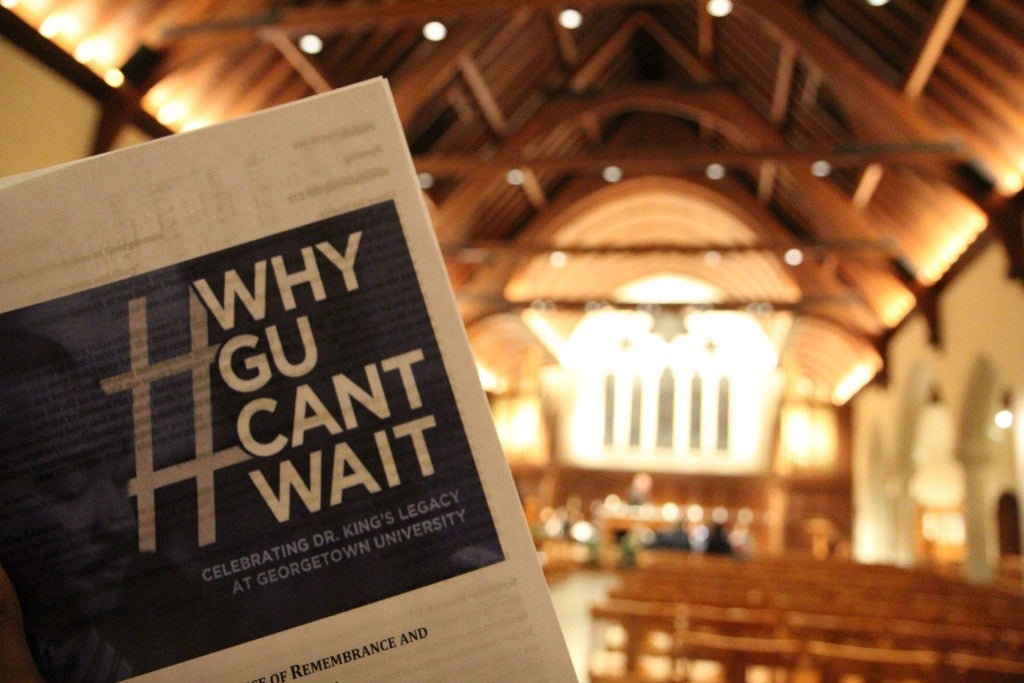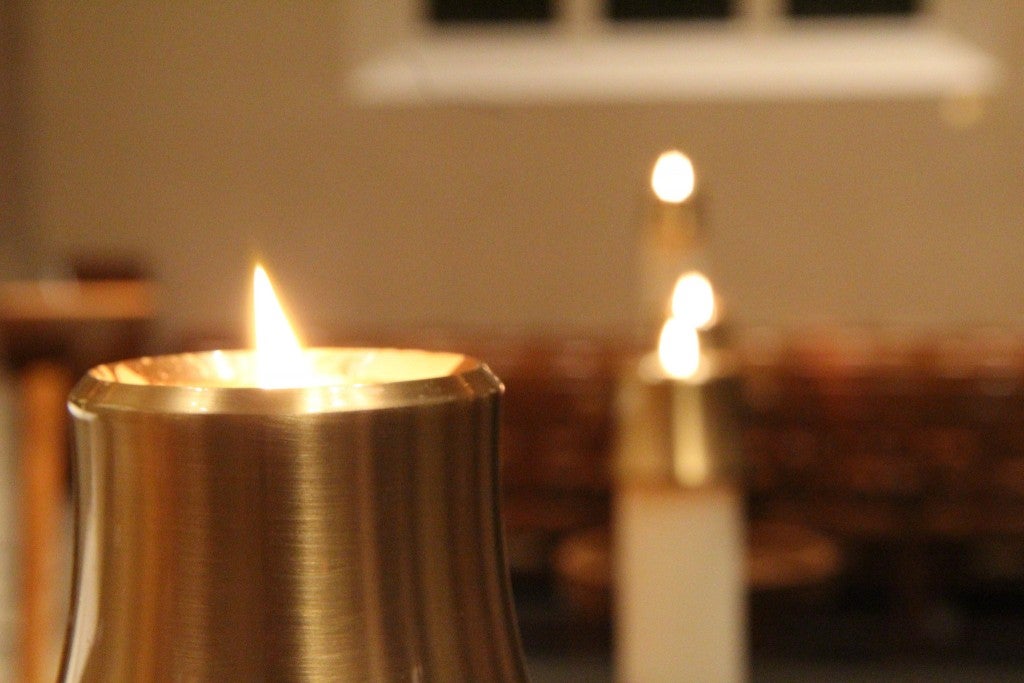On the Interfaith Service for Remembrance and Reconciliation

On Wednesday, January 20, Georgetown University Campus Ministry held an Interfaith Service for Remembrance and Reconciliation, in honor of the legacy of Dr. Martin Luther King and the enslaved people who played a crucial role in Georgetown’s formation.
Multiple religious traditions were a part of the message for justice. Rabbi Gartner and Imam Hendi both highlighted how their faiths emphasized a message of mercy and justice. One of the most powerful moments to me came during the Litany for Justice, which said, “May we be delivered from the temptations and evils of our time. May we always stand for justice and mercy. May we work to make our world a gentler place. May we truly be women and men for others.” The Litany called for an indefatigable desire for justice, and dedication of all of our capacities to making the world a better place for everyone to live.
Another key message of the service was the meaning and role of memorial. Georgetown recently changed the names of Mulledy and McShain Hall, who were both slave owners, to Freedom and Remembrance Hall to honor the legacy of the enslaved people at Georgetown. The service referenced Joshua 4:1-7, where the Israelites have stones taken from the river Jordan as a reminder of their experience and their covenant with God. Memorials are not gravestones of the past, but a way that we actively remember certain events in the past as guides for our future.
This service was a beautiful example of how Georgetown embodies the Jesuit value of interreligious understanding in everything it does, especially in tackling some of the most pressing problems of our time like racial injustice. By standing as a united front and in solidarity with people of color, we can continue to fight for justice in the image of Dr. King.
Written by Bailey Bradford, C’19.
- Tagged
- Interfaith
